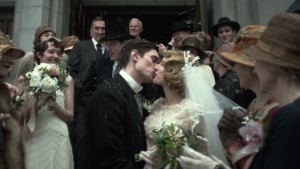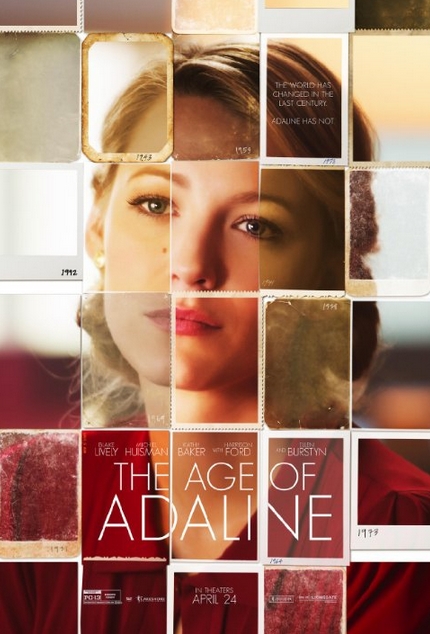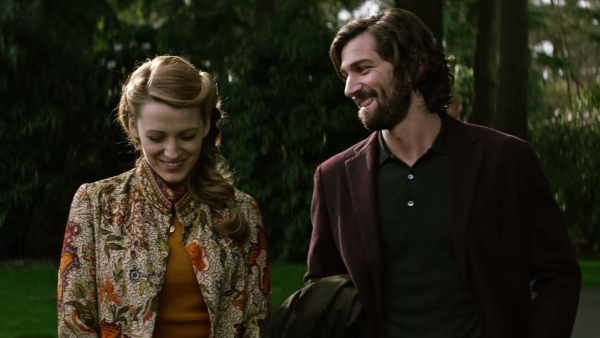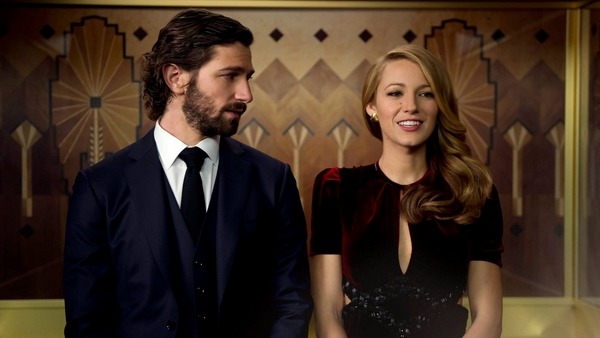 Is there such a thing as the one? One person who causes us to let our guard down, and then turns our world around? If you’re lucky, you find that person in your lifetime. But contrary to the words of the philosopher Jagger, time is not on our side. Adaline however has that envied yet double-edged luxury, only she uses her borrowed years to stay away from love. Not out of fear of her own heart breaking…but those of whom she meets.
Is there such a thing as the one? One person who causes us to let our guard down, and then turns our world around? If you’re lucky, you find that person in your lifetime. But contrary to the words of the philosopher Jagger, time is not on our side. Adaline however has that envied yet double-edged luxury, only she uses her borrowed years to stay away from love. Not out of fear of her own heart breaking…but those of whom she meets.
Lee Toland Kreiger’s The Age of Adaline is a charming and endearing love story, one that has all the makings of a modern classic. It’s also not the kind of romantic tale you’d expect which makes it all the more enticing. It’s timeless and through the script, cinematography and a slew of other filmic contrivances, it successfully  transports us from the present day world to one just on the brink of fairy tale. Krieger’s film is highly understated and exudes this perpetual dreamlike quality. The magical romantic drama is such a simple yarn that, even with its highly implausible conceit, it’s almost banal. This film seems to relish in the drama between the drama, and, at times, never feels like it gets out of first gear. Yet, that’s the point.
transports us from the present day world to one just on the brink of fairy tale. Krieger’s film is highly understated and exudes this perpetual dreamlike quality. The magical romantic drama is such a simple yarn that, even with its highly implausible conceit, it’s almost banal. This film seems to relish in the drama between the drama, and, at times, never feels like it gets out of first gear. Yet, that’s the point.
Krieger’s film is nearly the embodiment of the titular Adaline. It doesn’t feel the need to engage or even rise above simmer as 107 years of walking the planet, without fear of death, really takes the rush out of our self-important rituals. The Age of Adaline has a lot going for it, and each component helps tell this story that deals with love in a very unconventional way. It’s sort of a reverse Benjamin Button (right down to the expository narration) that feels like Fincher-lite, or a lost episode of the Twilight Zone.
Devoid of saturated colors, unnecessary dramatic dialog or edits, and sometimes a pulse, Krieger keeps the film very even-keel. It’s as poised as its lead actress and plays like a stroll down memory lane or better like flipping through a multi-generational photo album. Yet with each page turned, there exists a tangible, albeit reluctant, desire for Adaline to make new memories. The muted visuals mirror her stalled life, but the introduction of the highly likable Michiel Huisman brings little bit of life and color to Adaline’s world. Lively, the celestially blessed protagonist, shares a believable chemistry with Husiman whose innocent, almost puppy dog advances really help drive the story home.

Lively may not get a lot of credit for her past roles (well, she managed to show some believable depth in Oliver Stone’s Savages) but she really carries herself in a very sophisticated way here. From a story point of view, it’s because her effortless elegance comes from legitimate time served. Lively, her name almost a comical oxymoron here, is anything but, yet she’s able to exude this been there-done that grace that doesn’t come across arrogant.

Lively headlines the film, but a lot has to be said for Harrison Ford‘s ability to be compelling in a minor part. While he doesn’t get much screen time – him or his doppelganger Anthony Ingruber (seriously, check out his impressions) – he’s still a force here. On paper, the idea of two men loving the same woman decades apart seems improbable, but again, Adaline doesn’t run from love to spare her the pains of heartbreak, she keeps others from it. Even still, a clandestine life that keeps everyone at arm’s length is a lonely one.
G-S-T RULING:
For all the above praise, there’s very little to find wrong with the film save for one drawback. It’s hard to say that this movie is recommended for a repeat viewings because it feels a tad thin and lacks real emotional weight. A period-piece set in a modern era, like Adeline herself, this feels out of place in today’s cinematic climate. Again though, that’s the point. It works, well in fact, and is worth the time, but it fades like a dream quickly after leaving the theater.

